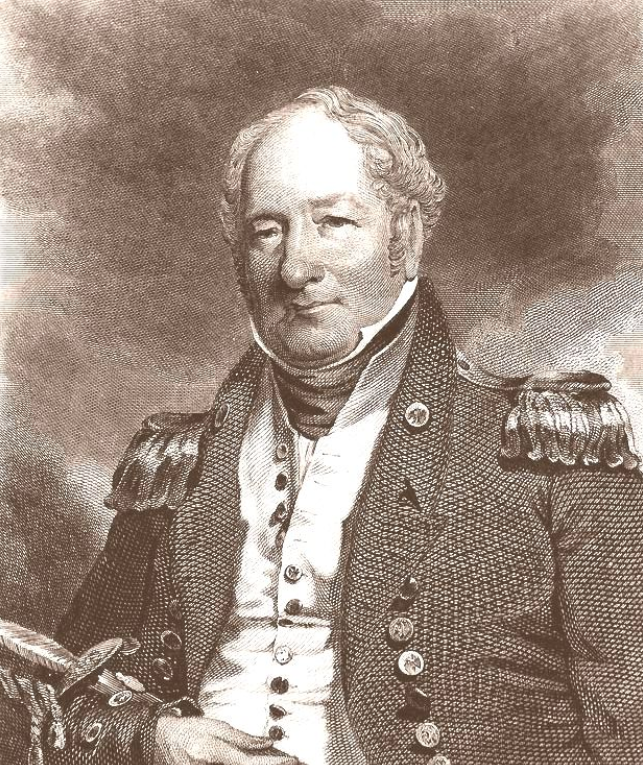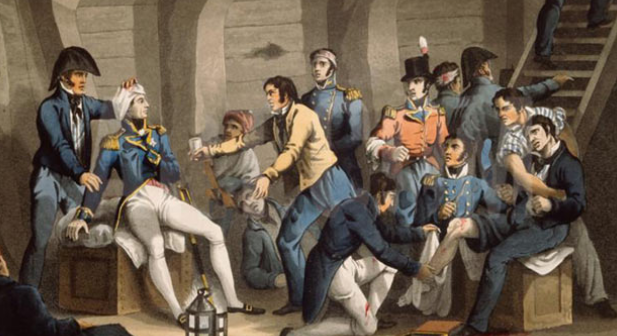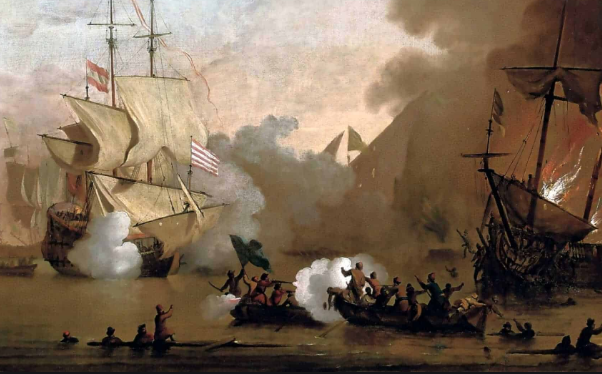James Barron and the Chesapeake-Leopard Affair
James Barron, brother of yesterday’s Founder, Samuel, was also a Commodore in the US Navy.
Barron’s failure during the Chesapeake-Leopard Affair led to President Jefferson’s passing of the Embargo Act.
James would later be involved in a pretty gruesome duel.
James Barron
James Barron grew up in a household familiar with naval warfare.
His father had served with the Continental Navy and James, along with his brother, Samuel, would both fight for their county at sea.
When the Quasi-War with France broke out during the John Adams Administration, Barron joined the new United States Navy.
Commodore
After the Quasi-War, James continued with the Navy.
He soon went to the Mediterranean where he fought in the Barbary Wars. Serving under his brother, Barron was given command of a ship.
By 1806 he had returned to the United States and was promoted to Commodore.
The Chesapeake-Leopard Affair
Barron was placed in charge of a brand new ship, the USS Chesapeake.
Eager to get back out to sea, James rushed the completion of his new vessel and set off.
Not far from the coast, the Chesapeake was attacked by a British ship of the line the HMS Leopard.
Barron was taken by surprise and easily bested.
The reason for the attack was that men who had deserted from the British Navy were on board. Four sailors were taken and impressed into service (well, one was convicted of desertion and hanged).
Fallout
The British immediately permitted Barron to return home, having achieved their goal of reclaiming deserters.
Upon his arrival, James was given a court martial and suspended from the army for a period of five years.
On a larger scale, the Chesapeake-Leopard Affair was the last straw in a long train of abuses by the British against American ships.
Although there was briefly talk of all-out war, President Thomas Jefferson decided to wage an economic war instead. The result was the Embargo Act of 1807.
This Embargo actually hurt the United States more than Great Britain and is viewed in hindsight as one of the great errors of the Jefferson Administration.
Duel
James Barron spent his time away from the Navy pursuing a mercantile career in Europe.
When he returned to the force, he had several arguments with a former colleague, Stephen Decatur.
Decatur was one of several men who sat for Barron’s court martial. Twelve years later, things came to a head and the two men fought a duel.
Both were severely wounded, with Decatur’s injury being mortal. Legend has it that, as the two men lay bleeding, James forgave Stephen for their disagreements.
Barron would survive the event and by 1839, under President Van Buren, was promoted to Senior Officer of the United States Navy.
Are you interested in learning more about the Continental Navy?
Great, start with some of these articles:
Esek Hopkins: Commander of the Continental Navy
Lambert Wickes - The Continental Navy’s Most Successful Captain
Alexander Gillion - Commodore of the South Carolina Navy
Want to read more about the Barbary Wars?
Brian Kilmeade’s book on the subject is the most recent and most authoritative study of the events.
Pick up a copy through the Amazon affiliate link below (you’ll support this site, but don’t worry, Amazon pays me while your price stays the same).
Want to get fun American Revolution articles straight to your inbox every morning?
Smart!
Subscribe to my email list here.
You can also support this site on Patreon by clicking here.





